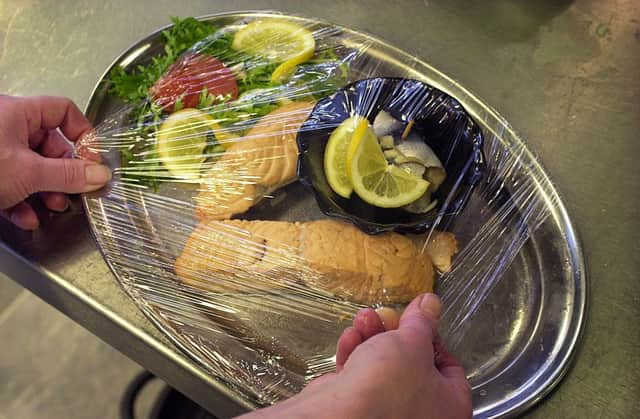Hard-up food firms cutting corners on hygiene


A report by consumer watchdog Which? found that just 45 per cent of food businesses in the area complied with hygiene regulations, according to figures submitted to the Food Standards Agency (FSA) – the lowest percentage in the UK.
Orkney is Scotland’s best- performing area, according to the report, although no Scottish council areas made the top ten.
Advertisement
Hide AdAdvertisement
Hide AdThe Which? report found that cash-strapped businesses looking to cut corners sometimes opted to replace expensive ingredients with cheaper ones, or relax hygiene measures.
It also warned that local authority cuts had left consumer vulnerable to restaurants, bakeries and cafes which are not being inspected as rigorously as they previously were.
The report comes in the wake of the horsemeat scandal, where traces of horse DNA were found in meat products sold in major stores 12 months ago.
A recent report by Ipsos Mori showed that fewer than a third of consumers had changed the way they shopped since the incident last year.
Which? executive director Richard Lloyd said: “No-one wants another horsemeat fiasco, so it is very worrying that local authority food checks are in decline. We want to see a more strategic approach to food law enforcement, that makes the best use of limited resources and responds effectively to the huge challenges facing the food supply chain.”
Last year, the number of food businesses in the UK was 608,143, generating 68,639 complaints about safety and quality. But Which? warned that food hygiene interventions – when local authorities step in to enforce standards – were down 1.8 per cent on last year.
In some areas, more than a third of high- and medium-risk food businesses are not complying with food hygiene requirements. Work to check food standards, such as the accuracy of labels, is particularly patchy.
The FSA data also shows overall food testing fell by 6.8 per cent from the previous year, continuing a decline, and testing for labelling and presentation fell by 16.2 per cent. The number of food standards interventions dropped even further – down by 16.8 per cent – leaving the potential for further fraud to slip through the net.
Advertisement
Hide AdAdvertisement
Hide Ad“Food standards in particular are being neglected, while some authorities are also struggling to ensure compliance with hygiene rules,” said Sue Davies, chief policy advisor at Which?.
“Greater priority has to be given to food standards work post-horsemeat. This means increasing the amount of testing that is carried out and ensuring this information is shared across all local authorities.
“Better deterrents are needed. This includes introducing tougher penalties so that it is clear that crime won’t pay.”
Which? ranked the areas by marking each against the UK average for three criteria, and combined the scores.
A spokeswoman for FSA Scotland said: “Consumer protection is the key priority and, where there are challenges, authorities are taking measures to protect their food services while still reducing costs.
“Local authorities need to decide their priorities, but we do expect appropriate resource is put into food safety.”